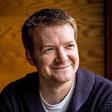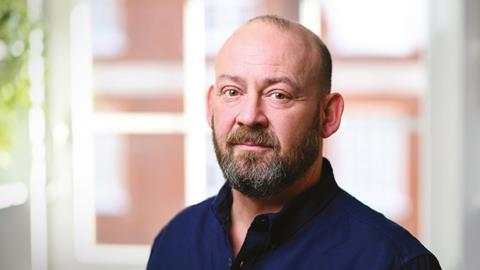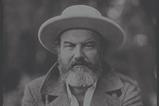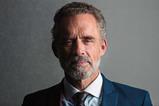The priest-in-charge at St Mary’s, Newington talks about losing his way and finding it again
Ten years ago this month, Rev Giles Fraser dramatically resigned from his ‘dream job’ as canon of St Paul’s Cathedral. His headline-making decision was prompted by the governing body’s vote to forcibly remove the anti-capitalist Occupy protesters camped in the square around the iconic building.
With a regular column in The Guardian (appropriately titled ‘Loose Canon’) and as a frequent voice on radio and TV, Fraser was already one of the country’s most recognisable religious figures. Yet, once the media furore came to an end, the priest found himself slipping into a personal crisis. Unsure of where to go next, he began drinking too much, his marriage broke down and he even contemplated suicide.
Fraser’s recent book Chosen: Lost and found between Christianity and Judaism (Allen Lane) charts how he found healing by reconnecting with the Jewish roots of his family tree. In a dialogue with Jewish scholar Amy-Jill Levine for The Big Conversation from Unbelievable?, Fraser says the journey has helped him learn to “live in the tension” between the two. A Christian priest who believes Jesus is the Son of God, now married to a Jewish woman, with children being raised in both traditions.
When I speak to him about the last decade, Fraser acknowledges that much has changed. He is still a regular media contributor but his current pastorate – St Mary’s, Newington, in one of the most multicultural parts of south London – is very different to St Paul’s. He appreciates the more grounded reality of parish life – “fixing the organ” and “picking up drug needles outside the church”. Likewise his politics has shifted. Having once been a darling of the left, Fraser now finds himself left cold by the rise of ‘woke’ ideologies that he believes are divorced from the realities of poor communities.
MY MARRIAGE FELL APART AND I DRANK TOO MUCH, ALL THINGS THAT ARE CHARACTERISTIC OF TIMES OF CRISIS
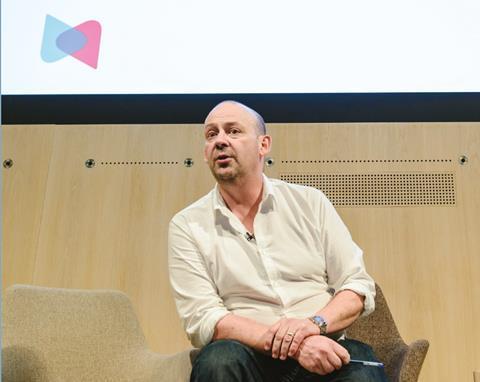
What hasn’t changed is Fraser’s high Anglican churchmanship. He’s never felt comfortable being “too chummy” with the divine, preferring to access God through the mystery of liturgy and the Eucharist. He’s also been openly critical of the Archbishop of Canterbury’s strategy for church growth, which Fraser (along with a vocal contingent of Anglicans) believes is leaving the traditional parish model to wither.
That doesn’t mean Fraser’s approach to Christianity is formal, however. He describes St Mary’s, a black majority church, as a place with “smells and bells, but where the servers wear Nikes”. He’s as likely to be found drinking with the locals as he is baptising their children. Fraser may have found himself lost along the way but says he still finds a place to call home in the Church of England.
You weren’t raised in a household where churchgoing was the norm. How did you end up as a priest?
I always thought of myself as a pretty hardcore atheist until I went to university. I studied philosophy, including philosophy of religion. I started to read all these people who just completely captivated my imagination. It was a very unfashionably bookish journey. I sort of converted with my head in a book. I suddenly decided that this was it. I had to give my life to it.
The very first thought I had was: I want to be a priest. Which was crazy, because I didn’t even go to church. So, I found this poor, unsuspecting chaplain and I told him that I was going to be a priest and how did I do it? And he obviously thought I was completely crackers, but very kindly explained the process to me.
THE MORE YOU LEARN ABOUT HEBREW, THE MORE THE SCRIPTURES COME ALIVE IN THE MOST WONDERFUL WAY
How did your family react to this remarkable change?
I think they thought it was another form of rebellion. And in a sense, it was. The secular language that I had been given was not able to describe the fullness of what I wanted to describe about the world.
That’s not to say it was a sort of conversion where I felt absolute certainty. It was definitely faith seeking understanding. I remember going to theological college and on the first night, lying there, looking up at the ceiling and thinking: Oh my word, have I started to write cheques that I can’t intellectually cash?
I’ve had that experience throughout my ministry, but I’ve learned to be much more relaxed about it. Faith is the conviction and the intellectual doubts are something that don’t trouble me as much as they used to.
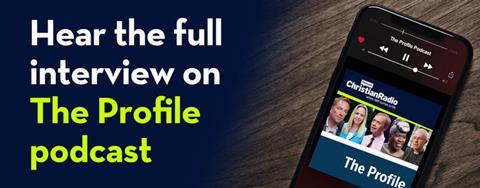
It may be the opposite that’s the danger in ministry. Being absolutely sure that you’re the most qualified person can breed a kind of arrogance.
I’m definitely not that! I don’t even know what it would mean to be qualified for this, you know? If you look at the people that God calls throughout the scriptures, it’s a funny collection of wrong-uns and strange people, isn’t it?
You describe Chosen as a religious ‘ghost story’ in which you reconnect with the Judaism on your father’s side of the family. But that journey began when you were looking for a new job after resigning from St Paul’s.
I had no idea what I was supposed to be doing next. The Bishop of London suggested that I go for a job interview in Liverpool. I was feeling like an exile in a city I didn’t know, but I had some time to spare and it crossed my mind that there was a very distant connection. My great-grandfather’s brother ran the synagogue in Toxteth in Princess Road. A beautiful synagogue.
I went and knocked on the door. A caretaker let me in and I saw this oil painting of my distant relative hanging on the wall, wearing a dog collar and looking, to all intents and purposes, like an Anglican clergyman.
As I looked at the painting, something quite profound moved within me. I sat down beside the road and wept for a long time. Suddenly I just didn’t know my place. Where are you from? What are you all about? There was a sort of a crisis that happened.
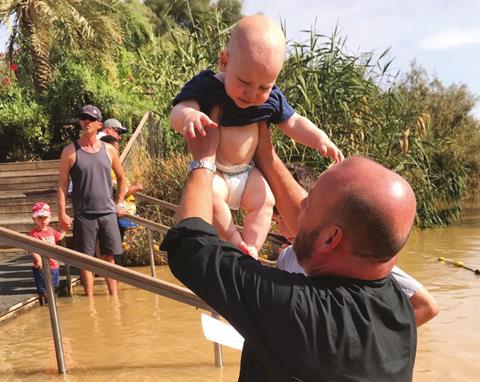
The book is a theological memoir. You delve into the relationship between Christianity and Judaism. Did you resolve your own sense of belonging in the process?
Disraeli said to Queen Victoria that he felt like that blank page between the Old Testament and New Testament. And I felt a bit like that. That sense of being caught inbetween.
Jesus wasn’t a Christian. Probably that word wasn’t even used of St Paul. Jesus’ first followers were Jews and Jesus was a temple-going Jew. He had disagreements with the temple, like many Jews did.
So how does this thing called Christianity develop out of Judaism? This was a sort of existential question about my own being too. Is it a parent-child thing? Is it a divorce thing? What’s the right metaphor?
The journey you went on was precipitated by a personal crisis. What happened at St Paul’s?
I was the canon theologian at St Paul’s Cathedral when the Occupy movement turned up in 2011. They turned up for the Stock Exchange, which is next door to the cathedral. They got kicked off the land and camped instead outside St Paul’s.
Whatever you think of Occupy, following the crash of 2008 there was a really strong question over whether the markets worked for the benefit of all. There were some people who thought: These are all smelly layabouts. And there were those who thought they were raising important matters of public concern.
There was a whole load of protesters outside the church and people couldn’t get in for worship. I hoped if I asked the police to move aside then the protesters might do the same.
But the press picked me up the next day as being a revolutionary, as I’d asked the police to stand aside. I actually asked both. Then one of the protesters asked: “Are we allowed to come to church?” Well, that’s a no-brainer for a priest. Everybody’s welcome to church. So, the headlines were ‘Canon says police move aside, protesters welcome to church’, and it was one of those headlines which, although technically true, was rather misleading.
You eventually resigned over the decision to remove the protesters. What led to that?
I watched a YouTube clip of police evicting Occupy protesters in Melbourne, and they were whacking people around their heads with batons. And I thought: If that’s what could happen here and it’s the Church that’s sent in the police, I can’t do that in conscience. But my colleagues had different convictions and they voted for eviction by the narrowest of margins. So that’s why I felt I had to go. It was clearly a turning point in in my career, in my life and all sorts of things.
Initially it led to a great deal more press exposure…
At the height of it, I would get phone calls from major political figures. Ed Miliband would call me up and say: “Well done.” Boris [Johnson], who was Mayor of London, called for my resignation. And then someone would call me up and say: “Do you want to go on I’m a Celebrity…Get Me Out of Here!”? Your brain is exploding with ridiculous things that normally you don’t have to deal with.
At the same time, you felt like you had lost your way…
The book starts in a very dark place, when I was contemplating suicidal thoughts. My marriage fell apart and I drank too much, all things that are characteristic of those sort of crisis times. So, the book is also about trying to write my way out of that ‘dark night of the soul’.
Having been perceived as a left-wing activist in the past, it feels like you’ve swung to the right in recent years. You supported Brexit, you’re a regular writer for more conservative-leaning outlets. You even voted Conservative at the last election. What’s heralded this change?
At the 2019 election there was no way I was going to vote for Jeremy Corbyn, with all the stuff about anti-Semitism that was coming out. For me, the most important thing about Brexit was that sovereignty was repatriated for many people. I used to be a parish priest on a council estate in the West Midlands, and people felt power was incredibly distant. I think it was the most important thing that we’ve done in this country in my lifetime.
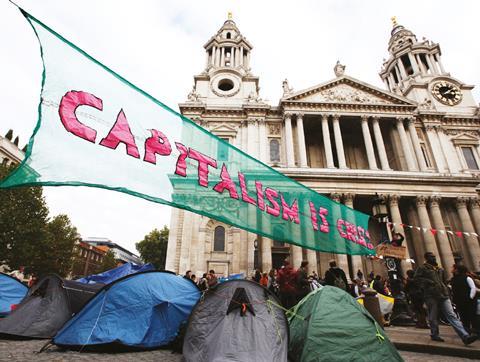
Recently your concerns have been around the rise of progressive, ‘woke’ politics. Why is that?
My problem with ‘wokeism’ as a whole package is it misses out the sort of thing that I was concerned about as an old-style socialist, which is the condition of people living in poverty – and that includes the white working class, who are often traduced in this whole amalgam of politics. So, I’m pro-gay, all of that sort of stuff, but I just don’t want to carry the weight of what it is to be ‘progressive’, you know?
I’m a parish priest. I have a sense of the community in all its fullness gathering around the altar, and I want it to be the most genuinely inclusive and diverse thing; God calls all people to come here. The idea that somehow you express your identity so exclusively that other people are the enemy…I think that’s what bothers me most about this particular moment.
We find it very difficult not to see people who disagree with us as the political enemy. I’m sure I’ve been guilty of that in the past myself. But I have a much stronger sense of how divisive and unpleasant these sorts of fights have become.
Such as the row over JK Rowling and transgender?
Absolutely, it’s terrible stuff. For Christians, there should be no cancellation where people have forgiveness, and forgiveness is about keeping people in the fold. That’s the stuff I really react badly to. ‘Never kissed a Tory’ – why not? I mean, give it a go! What is it about people that makes them like some sort of political leper? It’s almost as if you’re denying your common humanity with other people, and that really does bother me a lot.
Your family situation has changed in recent years as well. You’re now married to someone who is Jewish. How has that impacted the way you bring up your children?
I’ve got two wonderful little ones, and my wife is Jewish Israeli. We talk Hebrew at home. I understand a little bit. I know enough to know when my mother-in-law’s talking about me! But my boys speak as much English as they do Hebrew. The more you learn about Hebrew, the more the Hebrew scriptures come alive in the most wonderful way.
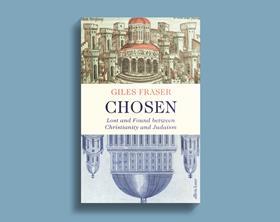
What will they think of themselves as? Christian, Jewish, neither?
The rabbi came from north London and circumcised them according to proper Jewish ceremony, because they’re Jews. But I’m a priest, so baptism is also something that had to happen. The book ends with me baptising my youngest in the Jordan, in the place where, by reputation, Jesus himself was baptised by John the Baptist. We were surrounded by my Israeli Jewish family. For me, it was a healing moment.
Now, the question is: Am I passing on to them a sort of fault line – a gap, a pain? If they end up rejecting all of that when they get older, then I suppose they’ll just have to say: “Well, I’m afraid I had a vicar as a dad.” But at the moment, this is what I have to give them, and I give them what I think is right.
At least they’ll have a whole book to be able to understand your thought process.
Ha ha, they will, yes!
To hear the full interview listen to Premier Christian Radio at 8pm on Saturday 9 October or download The Profile podcast
Watch Justin Brierley’s conversation with Giles Fraser and Amy-Jill Levine at The Big Conversation
